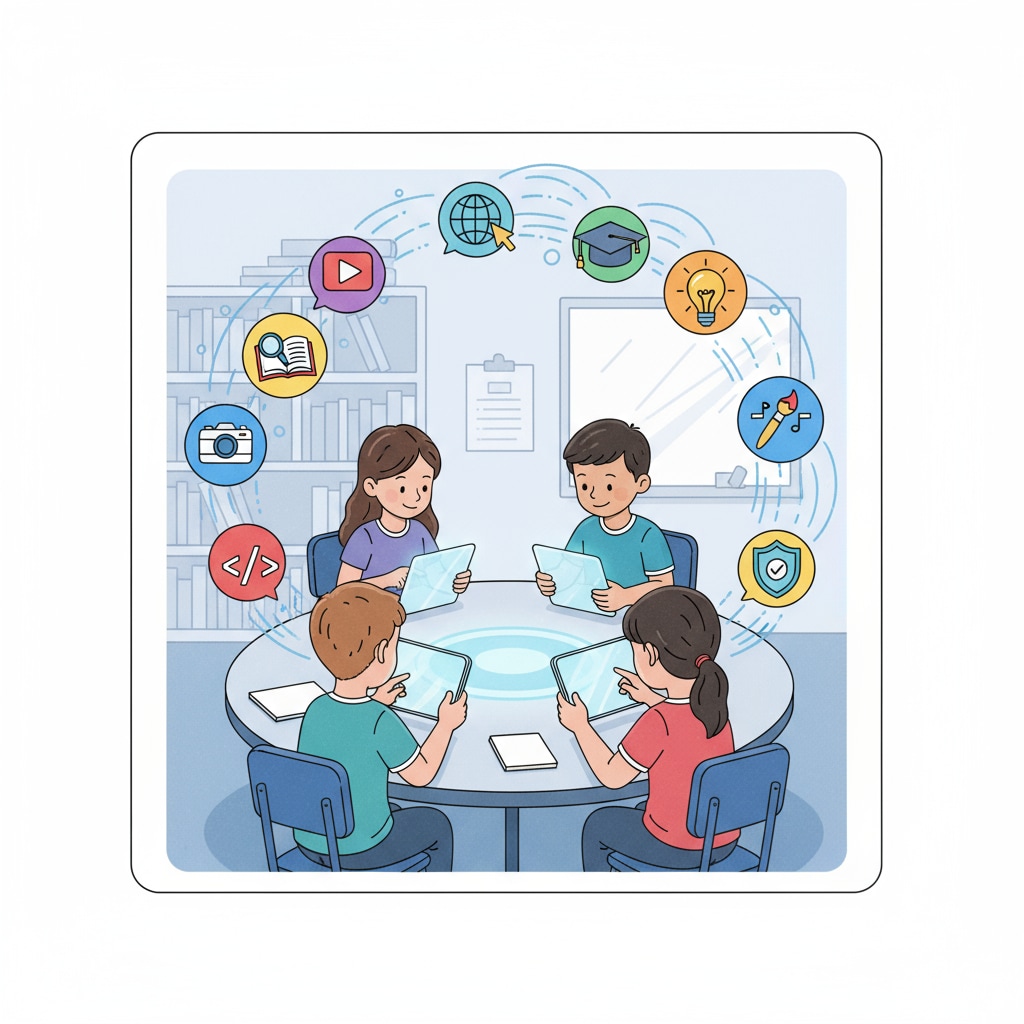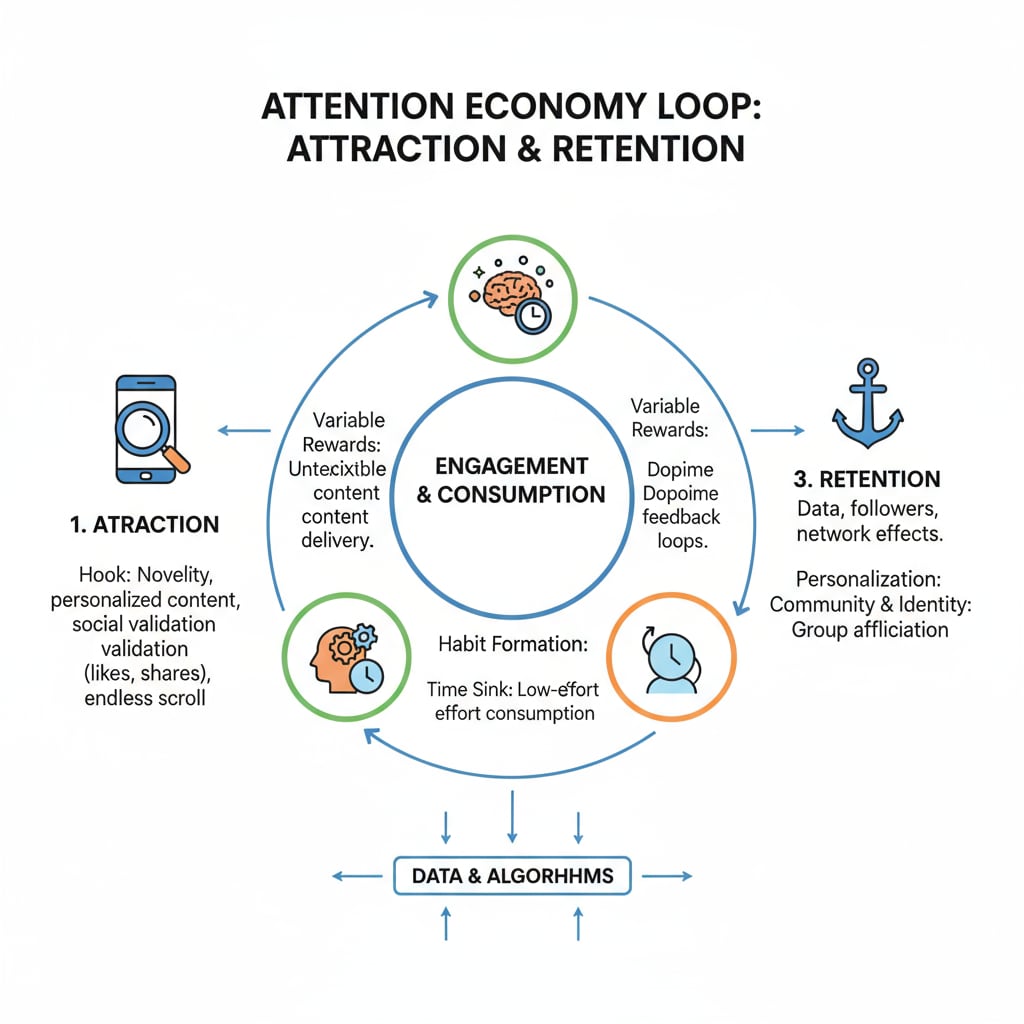The attention economy, tech manipulation, and the resulting information desert are significantly influencing the cognitive development of K12 students in the modern digital era. In today’s world, the internet is filled with countless distractions, all vying for our attention. This is especially true for young students who are still developing their cognitive skills.

As technology continues to evolve, it’s crucial to understand how these forces are shaping the minds of the next generation.
The Allure of the Attention Economy
The attention economy is a concept where companies and platforms compete for our limited attention. They use various techniques such as personalized algorithms, eye-catching visuals, and addictive design elements. For K12 students, these can be particularly enticing. Social media platforms, for example, are designed to keep users engaged for as long as possible. According to Wikipedia’s page on the Attention Economy, these platforms are engineered to provide a constant stream of new and exciting content, which can be difficult for students to resist. This constant exposure to short, attention-grabbing pieces of information trains their brains to expect quick rewards, making it harder for them to focus on more in-depth learning materials.

Tech Manipulation and Its Consequences
Tech manipulation plays a significant role in creating an information desert for students. Tech companies often use psychological tricks to keep users glued to their screens. For instance, notifications are strategically designed to create a sense of urgency. Students may find themselves constantly checking their devices, disrupting their study time and concentration. As a result, they are less likely to engage in deep thinking and analysis. This form of manipulation, as described on Britannica’s page on Technology and Society, can have long-term negative impacts on their cognitive development. They may struggle to understand complex concepts and develop critical thinking skills.
To combat these issues, educators need to take proactive steps. They can teach students about digital literacy, including how to identify and resist tech manipulation. By raising awareness, students can be better equipped to navigate the digital landscape and protect their cognitive health.
Readability guidance: The key points here are the allure of the attention economy and the consequences of tech manipulation. Educators should focus on teaching digital literacy to help students. We’ve used short paragraphs and provided external links for further information. Transition words like ‘for example’ and ‘as a result’ have been used to enhance readability.


